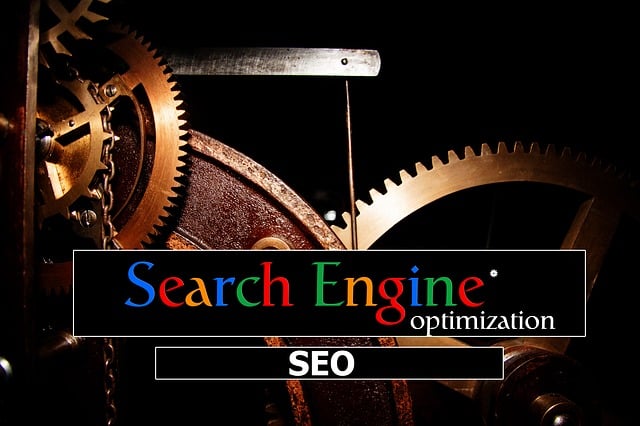AI has really changed the game for affiliate marketing, especially as we head into 2025. Finding successful products, writing content that actually converts, and keeping track of what’s working are now far more streamlined due to some clever AI tools. If you’re getting into affiliate marketing, or if you want to get more out of your current setup, knowing how to use AI the right way can push your campaigns further than ever before.
Identifying HighPerforming Products and Niches with AI
Figuring out top performing affiliate products used to involve a lot of manual digging through market trends, search volumes, and social buzz. Now, AI powered tools like Ahrefs, SEMrush, and dedicated affiliate network analytics are pretty handy for doing this instantly. AI sifts through huge chunks of data, such as consumer reviews, trending topics, competitor stats, and even price changes, to spot what’s hot and what’s fading out. According to Salesforce Research, over 60% of marketers now depend on AI predictions to pick new offers.
On top of that, AI trend prediction models highlight rising niches by scanning social media, forums, and news in real time. If you want to get in on micro niche trends before they take off, AI can give you that head start. For example, if a certain type of ecofriendly gadget or a wellness supplement picks up steam on TikTok or Reddit, AI will flag it almost instantly, so you can jump in before it goes mainstream.
Generating Compelling Content with AI
Putting out fresh, persuasive content is basically the backbone of affiliate marketing. AI powered writing assistants like Jasper and Copy.ai have made it much easier to create blog posts, emails, or even social captions that actually get clicks.

Here’s where AI powered content tools really shine:
- Content Personalization: Using data from previous user behavior, AI can customize article intros, recommendations, and CTAs based on each user’s preferences.
- Natural Language Generation: You can get nearhuman blog posts, product reviews, and listicles in less time, freeing you up to edit for voice and branding instead of writing everything from scratch.
- SEO Optimization: Many AI content tools come loaded with up to date keyword databases, topic structure suggestions, and even formatting tips, so you stand a much better chance of ranking on Google.
According to Content Marketing Institute, using AI assisted content production decreased time spent per article by up to 45% for digital marketers in 2024. That gives you a real leg up when you’re trying to scale. Additionally, these tools often have tone and brand voice settings so your content stays consistent even as you publish at a higher volume.
Click here to learn more about Creating Content with AI.
Optimizing Affiliate Links and Landing Pages
AI isn’t just writing the copy. It’s also helping with link placements and page layouts. AB testing platforms powered by machine learning, like Google Optimize, can suggest exactly where your affiliate links should go in each piece, right down to which paragraph or button to use.
AI tools like Instapage personalize landing pages in real time for visitors based on their location, device, and browsing history. If you want to drive conversions, tailoring landing page content to match the user’s intent is super important. These tweaks don’t just improve clickthrough rates, they can seriously boost your commissions by showing the right product at the right moment, catching the visitor right when they’re ready to buy.
Making the Most of DataDriven Insights for Targeted Marketing
Affiliate marketing has always been about finding that sweet spot between traffic and conversions, but you can’t do that blind. AI backed analytics platforms like Google Analytics 4, Amplitude, or Mixpanel give you deeper insight into how users are behaving as they click through your content and offers.
Some ways datadriven AI tools help:
- Predictive Analytics: AI models forecast which marketing channels and placements will bring the most value, so you’re not just guessing where to focus your efforts.
- RealTime Attribution: Instant insights help you tweak campaigns on the fly. You don’t have to wait for endofmonth reports to make changes.
- Automated Audience Segmentation: AI segments your traffic into meaningful categories, revealing who is most likely to click or purchase next.
Platforms like HubSpot’s Marketing Analytics Dashboard and Facebook’s AI powered Ad Manager come in handy if you want to create custom audiences or retargeting campaigns based on actionable, up to the minute data (Sprout Social). These tools help you figure out exactly which segments of your audience respond best to certain offers, helping you spend your ad dollars more wisely.
– Turn your own Hobby/Niche website into revenue.
– Monetize content based on your interests and goals.
– Also monetize Social Media and YouTube.
– Step by step training, tools and support. Everything you need for success.
– Your own AI powered website.
– Try it FREE to see if the program is right for you. No credit card needed.
Micro Segmentation: Creating Niche User Personas
Gone are the days of just targeting broad demographics. In 2025, AI digs deep to create microsegments using details like session duration, scroll depth, and click patterns. By spotting granular user behaviors, AI builds hyperspecific personas, for example, “afternoon mobile shoppers who always browse fitness tech.”
This level of detail helps you craft landing pages, offers, and content tailored to exactly what that microsegment wants. You end up with way higher engagement and conversion rates, because your message feels personal instead of generic. For instance, if a segment is identified as “late night smartphone users interested in productivity apps,” your content and offers can specifically speak to their needs and routines.
According to a McKinsey Digital Study, brands using AI for micro segmentation saw a 25% boost in engagement rates by 2024. That kind of relevance is tough to pull off using traditional analytics alone, and it allows you to make your marketing speak directly to each small but profitable slice of your audience.
Personalized Product Recommendations Using AI
Amazon’s famous for its AI based product recommendations, and now even microaffiliates can use similar tech. Recommendation engines pull from a visitor’s browsing and purchase history, as well as behavior from similar users, to suggest affiliate products that feel just right.
AI driven recommendation systems can either be built into your site or used through affiliate platforms like CJ Affiliate or Awin. They track what users click, how long they look at an item, and even what they skipped, then update suggestions in real time. The result: users see products they’re actually interested in, and you see an increase in clickthroughs and commissions. AI powered recommendations have been shown to generate up to 35% of Amazon’s total revenue (McKinsey). If you’re an affiliate, using these tools can be the difference between average results and really strong performance.
AI Powered Fraud Detection in Affiliate Programs
Affiliate fraud is still a real issue, from click fraud to coupon abuse and fake referrals, but AI helps crack down on suspicious activity. Modern fraud detection uses neural networks that flag unusual traffic spikes, abnormal conversion patterns, or even bot behavior. These are things that would be tough to catch manually until it’s already impacted your bottom line.
Leading affiliate networks now run AI based fraud scoring and anomaly detection. According to PerformanceIN, platforms using machine learning have managed to reduce fraudulent payouts by up to 30% in the past year. Keeping your earnings safe and making sure partners are legit is easier than ever with smart monitoring keeping an eye out for the bad actors.
Using AI for Competitor Analysis
Staying ahead in affiliate marketing means knowing what similar sites, blogs, or influencers are up to. With AI powered tools like SimilarWeb, SpyFu, and Brand24, you can automatically monitor competitors’ bestselling products, backlink strategies, paid ad keywords, and even see what’s trending in their content.
AI puts all that data in easy to read dashboards so you can quickly spot opportunities or gaps. If a competitor is suddenly pushing a certain product or new offer, you’ll see the change right away and can react before everyone else jumps in. This helps you keep your strategies fresh and makes it easy to jump in on new trends early.
Things to Consider Before Relying on AI for Affiliate Marketing
Even though AI is super useful, it works best when you know what to watch for. Here are a few things I always keep an eye on:
- Data Privacy: Handling user data responsibly and making sure AI tools are compliant with regulations like GDPR is really important. Using privacyfocused tools helps with transparency and builds trust with your audience.
- Model Biases: Some AI predictions can be skewed by faulty historical data, so it’s always smart to doublecheck insights against actual results before making big changes.
- Over Reliance: AI streamlines a lot, but mixing AI powered recommendations with your own creativity and audience knowledge usually brings better results than just hitting autopilot. Trust your instincts along with the tech.
Getting the Most Out of AI in Affiliate Marketing
Testing out different AI powered platforms and keeping up with changes in the space has been pretty beneficial for me. Keeping an experimental mindset helps you find the right tools and avoid getting stuck in one approach. AI in affiliate marketing keeps changing, so it’s worth checking out new software and tactics as they come out. For example, you might stumble upon a new analytics app or a content generator that fits your niche perfectly.
Frequently Asked Questions
How does AI help pick affiliate products or niches?
It pulls data from search trends, social conversations, and purchase history to spot hot products and emerging niches much faster than basic manual research.
Can AI writing tools produce content that ranks on Google?
With the right human editing and SEO tweaks, AI generated articles and reviews can absolutely rank. Many marketers are using AI for both drafts and outlines already.
Should I be worried about AI catching affiliate fraud?
As fraudsters get sneakier, AI powered detection systems are actually getting better at flagging suspicious traffic and fake conversions. This means safer programs and payouts for you.
Do I need to customize AI output for it to work effectively?
Yes. AI tools work best when complemented with human insight. Editing, branding, SEO optimization, and personal touches ensure content remains engaging, accurate, and aligned with your voice.
What’s the biggest advantage of using AI in affiliate marketing in 2025?
The real power of AI lies in blending automation—like niche selection, content drafting, and fraud detection—with human creativity and personalization to build sustainable, growth-focused campaigns.
Final Thoughts
Using AI for affiliate marketing in 2025 is all about blending creativity with smart data and automation. Picking strong products, writing original content, personalizing the experience, and protecting your campaigns with AI gives you a much better shot at both growth and sustainability. Keeping up with tools and trends is pretty important, and it can definitely help you stand out in the crowded affiliate space. Remember, the tech is there to make your life easier, but your unique touch is what will set you apart.
Here’s a little transparency: Our website contains affiliate links. If you click and make a purchase, we may receive a small commission. Don’t worry, there’s no extra cost to you.




